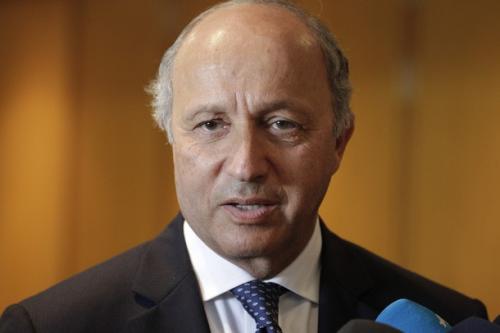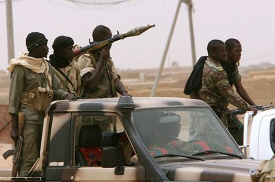French Foreign Minister Laurent Fabius said that Mali had requested the United Nations to approve an "immediate" mandate for an international force to help recover northern parts of the country.
French Foreign Minister Laurent Fabius said that Mali had requested the United Nation s to approve an "immediate" mandate for an international force to help recover northern parts of the country.
s to approve an "immediate" mandate for an international force to help recover northern parts of the country.
Citing a letter sent by Mali's interim leaders to UN Secretary General Ban Ki-moon on September 18, Fabius said Mali had requested a UN Security Council resolution under Chapter 7 of the UN Charter to mandate an international force "to help the Malian army to reconquer the occupied areas of northern Mali."
Chapter 7 allows the council to authorize actions ranging from diplomatic and economic sanctions to military intervention.
The West African country descended into chaos in March when soldiers toppled the president, leaving a power vacuum that enabled Tuareg rebels to seize nearly two-thirds of the country. But extremist groups, some allied with al-Qaeda, then hijacked the rebellion in the north to impose strict law.
"For several months Mali has been confronted by an unprecedented security crisis in northern areas (and has been) occupied by armed groups including terrorists, drug traffickers and all types of criminals," Fabius, reading from the letter, told reporters.
"The Malian government wants the immediate military presence of this force to support Mali's security forces to carry out this mission."
Fabius said Mali's request would be discussed at a high-level meeting on the situation in the Sahel on Wednesday during the UN General Assembly and that Paris had begun talks with other Security Council members on how to proceed.
The Security Council on July 5 endorsed political efforts by the 15-nation Economic Community of West African States (ECOWAS) to end unrest in Mali, but stopped short of backing military intervention there.
While Mali's request is the next step in the process, the Security Council is unlikely to provide a mandate for ECOWAS to intervene militarily until it outlines a more detailed strategy, including the number of troops and costs of the operation.